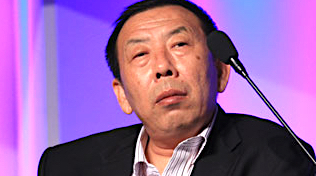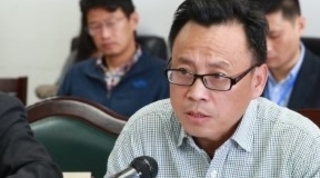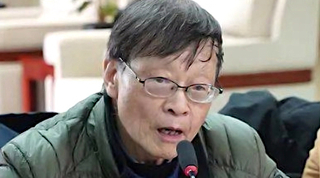Beijing’s turn to a nanny state is triggering public discontent; further cracking down on fun only ups the ante
For the best part of a decade Xi has poured resources into building his grand rejuvenation narrative, characterised by PRC-style puritanism and a system of pre-modern hierarchy in the service of building national strength. The resulting political order wins legitimacy by countering moral decay and corruption. The state demands that recently liberalised personal spaces, above all online and on stage, now reflect approved values only. The resulting nanny state is not new, but is empowering new modes of state intrusion.
building core values
Party theorist Wang Huning 王沪宁 has since the late 1980s ranked mainstream values as the most vital pillar of society. Politics and social order are outcomes, he has maintained, of a nation’s cultural essence; a collapse of mainstream values portends collapse of the social and political orders. An influential value could, on the other hand, serve the national interest: culture functioning as ‘soft power’. Building new ‘core values’ is a key step for Wang, who arguably drummed its necessity into the Politburo well before the ascension of Xi Jinping.
The theme traces back to Wang’s 1988 book America versus America, written on his return from a six month tour of the US. Decay of traditional values and culture would, he argued, lead to the decline of US power. But what had seemed to be fault lines of success and immediate gratification particular to America, would surface in China a mere dozen years later. They are now exacerbated by ‘over entertainment’ crowding out the uptake of PRC core values, which were already under pressure from individualism, affluenza and historical nihilism.
Collectivism and discipline, Wang argues, are essential elements in a remedial cultural mix. He concluded his US study noting that there were many factors that set society's norms, but values were critically important.
Similar arguments litter official speeches and publications. In a celebrated early speech (August 2013), Xi points to endemic corruption in the PRC, tracing it back to the dilution of core values in the wake of sweeping commercialisation, and loosening of Party discipline and ideological control.
The desirable values—implicitly overriding domestic ethnic differences—must reactivate patriotism, traditional morality, heroism, selflessness, collectivism, confidence, honesty and so on. Setting common baselines for the social and political systems, they would unify everyday judgements of right and wrong, reinforce the Party's grand narrative and thereby reduce conflict.
the lure of ‘red solemnity’
The Party’s cultural offerings should be attractive to both mass and elite consumers, yet must do more than ‘simply cater to market demand’ or base instincts. Instead, they must provide a dignified, 'solemn’ culture based on the revolutionary blend of puritan and romantic, underlining deferred gratification, self-sacrifice, obedience, loyalty to tradition and orderliness—and be backed by a disciplinary order with severe penalties.
Sources of this moral revivalism can be found in Wang Huning’s US experience, but equally in the millenarian movements of Chinese history: the White Lotus, Taipings, Boxers to the Cultural Revolution of Xi's own youth. Wang may not have directly influenced Xi with these ideas but it is more than likely they share them on some level.
Massively disseminated via official media, Xi and Wang’s core values play a formative role in PRC governance. But why these values? The coercive power of the state is not enough of an explanation. Nor is popular nostalgia for Maoist egalitarianism. Other factors are equally important
- the tradition of a nanny state with fixed rights and wrongs
- the new authoritarian vision of national strength that rejects transplanted institutions
- a political-cultural blend that people identify as their own
- the need to prepare the ground for installing the new political order
counter currents
The reform era, welcoming globalisation and raising all boats, also brought with it anomie and alienation. They too are authentic experiences, but clearly they are incompatible with red solemnity.
As well as knee jerk repression via regulation, Beijing is now taking aesthetic, moral and behavioural rectification to unprecedented levels. The Party is flooding the online and entertainment worlds with moral criteria. Effeminacy, affluenza and fandom cannot be depicted, nor 'over entertainment' supported. Solemn and socially responsible themes must replace them.
Xi is, of course, supported by both his political allies and intellectual enablers like Wang Huning. Yet his framing of the issues has very little purchase among the intellectual elite who play essential roles in policy research and assessment. Revered Tsinghua University sociologist Sun Liping 孙立平, for example, deals with the very symptoms of social malaise that concern Xi and Wang. But the direction of causality he analyses is opposite to that seen by Xi: for Sun, anomie and alienation stem from Party suffocation of civil society, meaning the Party is unlikely to be a source of salvation. The philosopher Fang Zhaohui 方朝晖 broadened Sun’s analysis to point to a ‘loss of industry values’, the sense of professional identity in a skilled workforce, a loss correlating with invocations of patriotic self-sacrifice.
Sun and Fang and their readership can go only so far in resisting strict rollout of puritanism. But the issue is also reaching a stalemate with the general public. The problem is flagged by, of all people, official propagandist Hu Xijin 胡锡进, Global Times editor in chief. He has now racked up a small stream of posts criticising nanny action against the media at the local level.
So what is on the cards? Reservations like those of Hu Xijin will be allowed within limits. Contemporary Chinese society outdistances the state, forever breeding counter cultures that bypass and frustrate authority. But nor is the Party, in its self-proclaimed new era, of a mind to give up its reengineering ambitions.
profiles

Sun Liping 孙立平 | Tsinghua University Department of Sociology professor
Wang Huning may have been ideological advisor to a series of Party general secretaries, But Sun Liping, having acted as supervisor of Xi Jinping’s PhD thesis, earned a unique nickname: ‘imperial tutor’ (dishi 帝师). This permitted him, not long after Xi’s rise to the leadership in late 2012, to state publicly that state agencies at all levels had been ‘unscrupulous’ in governance, ‘had authorised evil’, becoming ‘incompatible with the rule of law’, and would face crisis sooner or later. The reality is that, leading a sociology department that delves into sensitive social and political issues, Sun is a public intellectual, critically examining everything: the economy, corruption, geopolitics and culture. His consistent focus over several decades has been social decay: corruption, reform, vested interests and more.

Fang Zhaohui 方朝晖 | Tsinghua University Institute of Humanities professor
Writing at length on Confucianism in relation to democracy, Fang has kept a careful critical distance from both. Avoiding direct opposition, he often diverges from or powerfully relativises official narratives and social/political assumptions. Among typical topics: meta-philosophical modes of argument, ‘social harmony’, the nature of soft power, democracy and Confucianism. Tenured at Tsinghua’s Humanities Institute, Fang has long been in close proximity to ‘new leftists’ Cui Zhiyuan 崔之元 and Wang Hui 汪晖, and liberals Sun Liping and Qin Hui 秦晖.

Xiao Gongqin 萧功秦 | Shanghai Normal University professor
In the wake of the removal of Hu Yaobang 胡耀邦 as Party leader, intellectual historian Xiao, by 1987 an associate professor at Shanghai Normal University, was a proponent of ‘new authoritarian’ ideas, calling for an ‘express train’ building of state capacity before democratising. Xiao took a more liberal tone in the Hu-Wen decade (2002–12), e.g. co-signing an open letter denouncing crowing in the PRC over the 9.11 terrorist attack on the US. He now reads Xi’s tough re-centring as a mobilisation strategy rather than a return to Mao-era leftism. Outside the Party hierarchy, he enjoys relative tolerance, enabling him to defend a respect for diversity and warn against overreach. He recently criticised assumptions of cultural superiority hinted at in Xi Jinping Thought.
